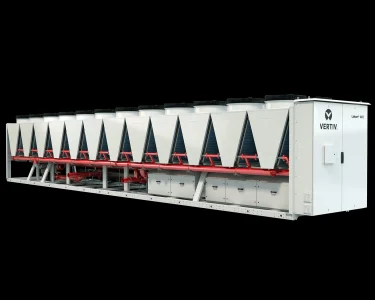CHINESE technology device company, InnJoo has gone into partnership with Technology Distributions (TD) to introduce into the Nigerian market, the world’s first slimmest laptop known as LeapBook.
The device, which was unveiled to the media in Lagos at press conference weights 1.275 kg, 18.2mm thin and it comes with Window 10 operating system in addition to Intel CherryTrail-T3 Quad core Z8350 1.44Ghz up to 1.84Ghz.
The country Manager, InnJoo Mobile, Mr. Rakash Rocque revealed that it is the only laptop in the market that can be recharged with a car charge saying that the notebook, is currently available in two colours, namely the champagne gold and moonlight silver colours.
Rocque said that LeapBook is very affordable and could be picked off the shelf with less than N100,000, stressing that it is a fast, capable work tool fitted for today’s dynamic and fast-paced business and lifestyle environment.
While explaining the power pontentails of the device, he said that it has the power requirements of tropical Africa in mind as it comes with a 10,000 mAh battery, which delivers up to 10 hours battery life for almost an entire day’s use and an equally fast charger/adapter.
He confirmed that the LeapBook has be officially acknowledged as the world’s lightest and slimmest 14’-inch notebook, adding “You can comfortably charge it in the car of even a power-bank that is has the capacity of 10,000 mAH and above.”
According to him, the LeapBook was made to appeal to a growing generation of tech-savvy Nigerians who rely on their devices on the go to meet a variety of business, work, lifestyle and leisure needs.
Managing Director, Marketing at TD, Mrs. Chioma Chimere, who giving insight into some of the unique that the InnJoo brought to bear on the device described LeapBook as a work creativity.
She said that the desire for TD to partner with InnJoo on the notebook was because as a company it is always determined to bring on board the best of products for Nigerians and the sub-region.
She also said that the InnJoo LeapBook is already available at TD head office and will be made available to their entire footprint across Nigeria by next week, just as customers can also order online from Jumia, Konga and Yudala.
She was confident that TD would continue to play its wide reseller base and dominance role in the ICT distribution eco-system, noting that with InnJoo’s growing suite of world-class products, the InnJoo Leap is set to enjoy an overwhelming reception and demand in the market.
HOW NEW TECHNOLOGIES REDUCE HEALTH RISKS ASSOCIATED WITH OILY DIETS
It is a well-known fact that too many fats and oils in your diet can increase one’s risk for a number of potential health challenges including obesity, heart disease or cancer.
In continuation with its knowledge-sharing series, Yudala – the largest online and offline retail chain examines these health risks and identifies how new technology is helping a lot of people reduce the risks associated with excess oil in food.
Oils in the food we eat – or what is often referred to as dietary lipids – play a very important role in maintaining general body health. This is true especially for the oils that provide essential fatty acids.
Fats and oils provide energy, absorb certain nutrients and maintain core body temperature. Furthermore, they serve as a back-up source of energy to fuel one’s workout when carbohydrates are not available.
However, large amounts of fats and oils in our diet can prove detrimental to health. In addition, the types of fats and oils you take in each day can ultimately affect your health status. Three areas of particular concern in regard to this are obesity, cardiovascular disease and several types of cancer.
Food-based fats and oils are predominantly triglycerides, that is, three fatty acids attached to a glycerol backbone. The chemical structure of the fatty acids determine whether the fat is monounsaturated, polyunsaturated, saturated or trans.
The more saturated a fat is, the worse it can be for your health. However, eating too much of any kind of fat can still be bad for you, as they can lead
Obesity often refers to a state in which your percentage of body fat is abnormally high. When you consume more calories than you can readily burn, the body stores the excess as adipose tissue or fat. If this situation extends over a period of time, you can become overweight and eventually obese.
Dietary fat supplies more calories per gram than protein or carbohydrates. It is, therefore, easier to become obese when you eat large amounts of fats and oils. Obesity itself can be dangerous to your health, as it is a risk factor for diabetes, heart disease, cancer, gall bladder disease and hypertension.
Fatty foods often contain cholesterol. Admittedly, we all require some cholesterol in the body for optimal health. Nevertheless, too much of it can cause problems. Excess cholesterol in your blood can lead to heart disease as this type of fat can get deposited along the walls of your arteries. As cholesterol builds up in the blood vessels, there is less room for blood to pass and this makes the heart to pump blood harder. Saturated fats, often found in the same foods with cholesterol, increase your levels of Low Density Lipo-protein (LDL) or what is commonly known as bad cholesterol, while unsaturated fats have the opposite effect. The more saturated fats and cholesterol you consume, the greater your risk for developing cardiovascular disease.
Excess oil consumption of oils has been identified as a risk factor for breast cancer, colon cancer or lung cancer. Although the exact mechanism of this relationship is still under investigation, diets that derive more than 30 percent of daily calories from lipids, particularly those containing high levels of saturated fats, might increase your cancer risk.
The foregoing makes the coming of new technologies such as Air-Fryers which address this particular issue a welcome development for many.




